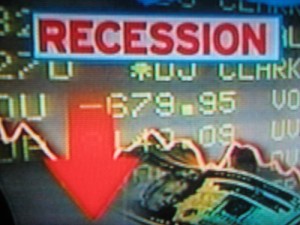The Commerce Department reported Monday that the growth of consumer spending slowed in March, further indicating the United States may be swept into Europe’s recession and the ranks of the U.S. unemployed are swelling.
Tax increases are tightening purse strings. In March, consumer spending advanced a tepid 0.2 percent—much weaker than the 0.3 and 0.7 percent registered in January and February.
Such a slow pace is hardly enough to sustain a robust recovery and other pressures could push the economy over the edge into a recession.
Extraordinary year-end bonuses and dividends—intended to dodge higher taxes in January—boosted consumer activity in January and February but now households are hunkering down.
Much weaker consumer spending is expected for the second quarter as the $120 billion January hike in payroll taxes and $45 billion increase in income taxes borne by the wealthy weakens household finances.
In January, when a last minute tax deal raised social security taxes, working- and middle-class families could not adjust spending immediately—they have to keep driving to work and feeding their children—but in March retail sales fell precipitously. Now forecasters expect traffic at shopping malls to recover only slowly.
Many upper income families pay taxes on a quarterly basis, and the actual impact of the quite complex changes to the tax code and rates implemented in January were not reckoned until their accountants computed their first quarter payments due April 15—now they are trimming purchases even further.
Also, the January tax changes greatly reduced mortgage interest deductions for high income families, and this will weaken demand for new and existing homes. The pace of sales may not be much affected but the price increases are likely to slow, especially outside of hot markets like Florida and New York, where speculators and foreign investors seeking refuge from uncertainty in Europe and China have been pouring money. Overall real estate inflation will not support real asset growth and rising consumer spending the balance of 2013 as it did last year.
Along with sequestration, higher taxes are subtracting more than $200 billion from household purchasing power and government spending—that is slowing demand for what Americans make and makes jobs tougher to find.
More than 40 percent of the 2.5 percent growth in first quarter GDP was supported by growing inventories—not final sales of goods and services. Overall, final demand is advancing at a pace that will support subpar growth of about 2 percent—perhaps less—for the balance of the year.
U.S. corporations are reporting weak sales growth, even as profits advance, but the cost cutting necessary to accomplish that dichotomy will result in continued slow hiring and perhaps a wave of layoffs.
Weakening conditions in Europe make layoffs more likely, and the danger that Southern Europe’s severe recession could spread north to Germany and across the Atlantic to the United States and Canada is quite real.
Peter Morici is an economist and professor










